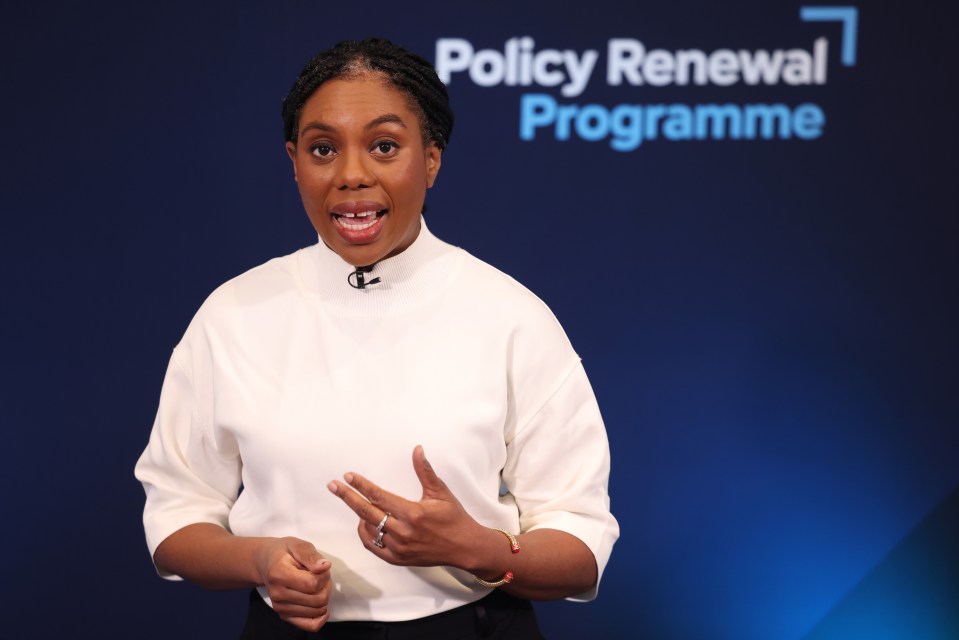Kemi Badenoch and the Prime Minister: An Explosive PMQs Showdown

In an intense session of Prime Minister’s Questions (PMQs), Conservative Party leader Kemi Badenoch confronted the Prime Minister, shedding light on the dire economic situation following Rachel Reeves’ Emergency Budget. Her statements confirmed the deep-seated fears many have harbored about Labour’s potential impact on the nation in their first nine months of governance.
Badenoch articulated that Britain’s economy appears trapped in a troubling downward spiral, stating, “We have long suspected that a persistent negative narrative about the economy, coupled with fabrications of fiscal black holes, would stifle business confidence. This would inevitably lead to companies hesitating to hire new staff or invest in the UK.”
She pointed out several alarming actions taken by Labour that threaten economic stability:
- Significantly increasing taxes on farmers and businesses, which could suffocate growth.
- Unjustly cutting winter fuel payments for vulnerable pensioners.
- Engaging in massive borrowing to fund trade unions and costly ‘green energy’ initiatives, putting public finances in jeopardy.
In a sobering report released on Wednesday by the independent Office for Budget Responsibility (OBR), the forecast for families looked grim. Badenoch emphasized:
- Growth has been halved.
- Inflation is creeping upwards.
- Unemployment is projected to rise this year, and in the years to come.
Badenoch lamented that Rachel Reeves has lost command of the economy, leading to emergency welfare cuts aimed at restoring balance. She warned, “People will face job losses, grocery bills will climb, and salary increases will be a distant dream. This is the stark reality of a Labour government for the readers of The Sun.”
She continued, highlighting that the nation is now spending more than ever on servicing the national debt interest—an amount nearly double that of the entire defense budget. The modest financial buffer that Reeves had allocated in October to shield against global economic shocks has been entirely depleted.
Badenoch expressed her disappointment in Labour’s economic management, stating, “Starmer and Reeves have consistently shown a lack of understanding of what drives growth—it’s not the government that creates growth, but businesses.” She emphasized that a budget that raises taxes on businesses discourages them from making the necessary investments to foster economic growth.
Reflecting on the past, she remarked, “The last Conservative government handed over an economy that was the fastest growing in the G7. Now, we find ourselves in a state of stagnation.”
Looking ahead, she warned of a looming trio of economic challenges: Rachel Reeves’ Jobs Tax, Angela Rayner’s Unemployment Rights Bill, and the ominous threat of a global trade war.
Starting with the Jobs Tax, she pointed out that last October, the government broke its pre-election pledge not to raise National Insurance, resulting in a tax hike that makes hiring staff considerably more expensive. Although this punitive tax doesn’t take effect until next weekend, its repercussions are already being felt—companies are now freezing hiring, raising prices, or resorting to layoffs.
Badenoch further noted the broad impact of the Jobs Tax: “Every employer in the country is liable for Labour’s Jobs Tax, affecting essential services and organizations that barely scrape by. Charities, nurseries, local councils, pharmacies, GP surgeries, and even hospices are scrambling to find funds to accommodate this tax increase.”
She lamented the implications for schools, where some estimates suggest the average institution may need to eliminate two teachers to manage the financial strain. “Is Keir Starmer comfortable with the prospect of charities shutting down, hospices unable to care for terminally ill children, and schools having to let go of teachers? I seriously doubt it,” she stated. Despite Conservative MPs urging the government to reconsider, Labour MPs voted repeatedly to impose the Jobs Tax on vital services.
The extent of Labour’s mismanagement extends beyond the Jobs Tax. Badenoch highlighted the OBR’s recent revelation that they had not adequately assessed the economic ramifications of Angela Rayner’s (un)employment rights bill, which introduces burdensome regulations and red tape that are opposed by every serious business organization in the country.
While the precise economic impact remains uncertain, it is clear that these measures will make it riskier for businesses—especially smaller employers like shops and pubs—to hire new staff. The most adversely affected will be young individuals seeking their first job. All of this is done to appease trade unions, the largest financial backers of the Labour Party.
To wrap up her grim forecast, Badenoch pointed to the rising risk of a significant disruption to global trade. She recalled her first PMQs in November, where she urged the Prime Minister to revive the US-UK trade deal that the Conservative government had been negotiating with President Trump during his administration. Six months later, there is little indication that Starmer took her advice. On the very day Rachel Reeves acknowledged her lack of control over the finances, the United States imposed a 25% tariff on all car imports, including those from Britain.
Badenoch concluded by urging the Prime Minister to take decisive action before this trio of economic challenges traps the country in a cycle of stagnant growth and rising unemployment.



